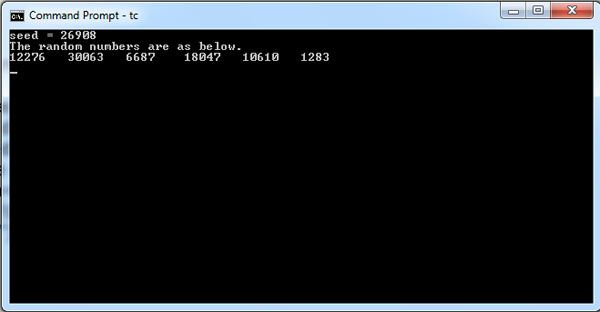In many cases and particularly in computer games, a seed number cannot be provided on every event. We need some function whose return value is always changing. Time is always changing; so, we make use of function time() defined in the header file <time.h>.
The function time (Null)gives a number which is equal to the number of seconds elapsed till now since 1st January 1970 Greenwich time 00:00:00. This number is always changing. The problem of using a different number as seed number is solved by the following code:
long unsigned seed.= time(Null);
srand (seed);
Or we may use the following code:
srand (time(Null));
Program uses srand (time (Nu11)); as well as displays the value of seed number.
#include<stdio.h> #include<stdlib.h> #include <time.h> main() { int n; long unsigned seed; clrscr(); seed= time(NULL); srand (seed); printf("seed = %d\n", seed); printf("The random numbers are as below.\n"); for (n=1;n<7;n++) printf("%d\t", rand()) printf ("\n"); return 0; }
The expected output is as given below.

 Dinesh Thakur holds an B.C.A, MCDBA, MCSD certifications. Dinesh authors the hugely popular
Dinesh Thakur holds an B.C.A, MCDBA, MCSD certifications. Dinesh authors the hugely popular